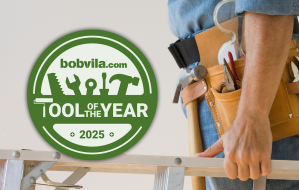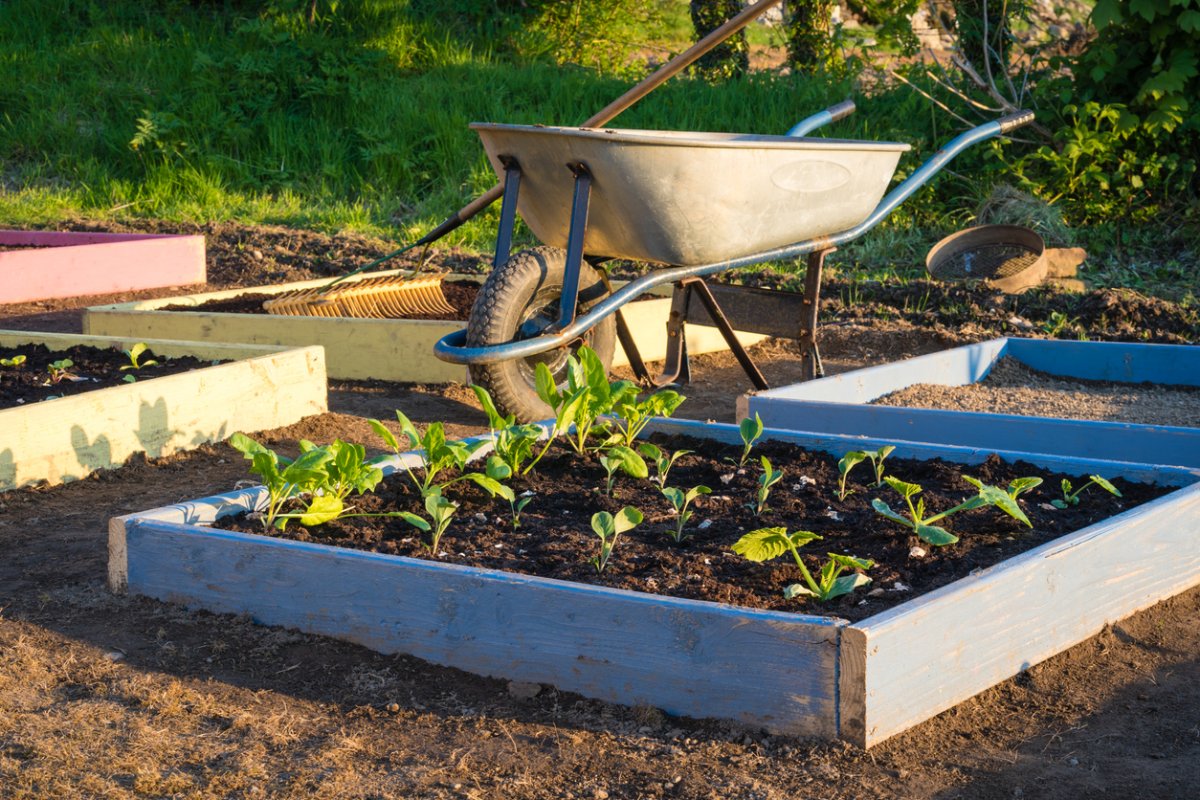

We may earn revenue from the products available on this page and participate in affiliate programs. Learn More ›
Homesteading as a term can be derived from the Homestead Act of 1862, in which eligible adults who had not taken arms against the U.S. could claim 160 acres of surveyed government land to live on and improve for at least 5 years. Today, homesteading signals a self-sufficient, “back to the land” way of life emphasizing sustainability and self-reliance.
Some homesteaders even embrace off-grid living, growing their own food, collecting their own water, and relying on renewable energy to minimize their carbon footprint. Whether you’re ready to take the plunge into the homesteading lifestyle or just want to add some sustainable practices and independence to your life, these homesteading trends and ideas can help anyone be a little more self-sufficient.
1. Grow a garden.
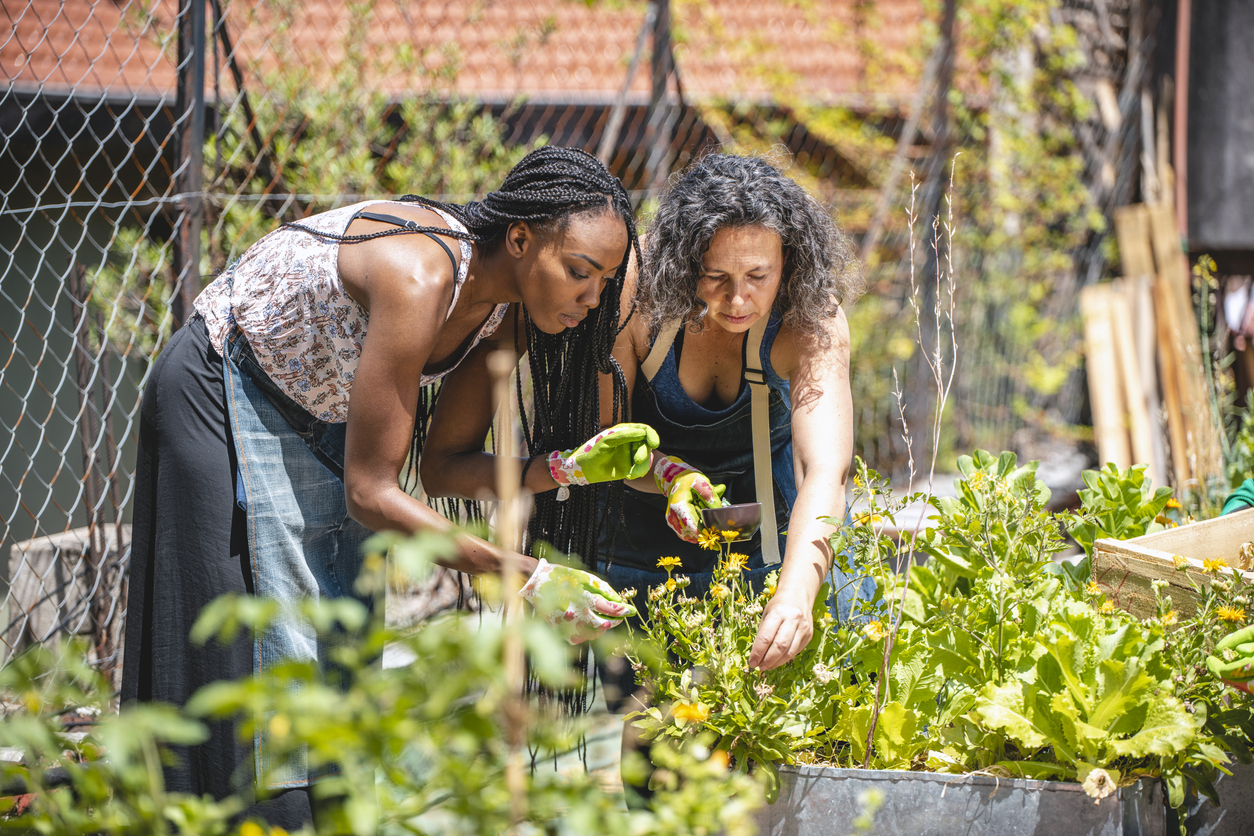
Many homeowners have at least a small garden, and you don’t necessarily need a lot of space to grow your own food. Opt for a raised bed or prepared ground and choose a sunny spot. Next, a homesteader can amend their soil as necessary, select the household’s favorite fruits and veggies, and follow relevant directions for spacing, water, and fertilizer.
If you have more space and a greener thumb, consider adding fruit trees to your plot. The key is to select varieties suited to your hardiness zone. To round out the homegrown food availability, add some perennials, such as berry bushes, asparagus, strawberries, grapes, and herbs.
2. You can can.
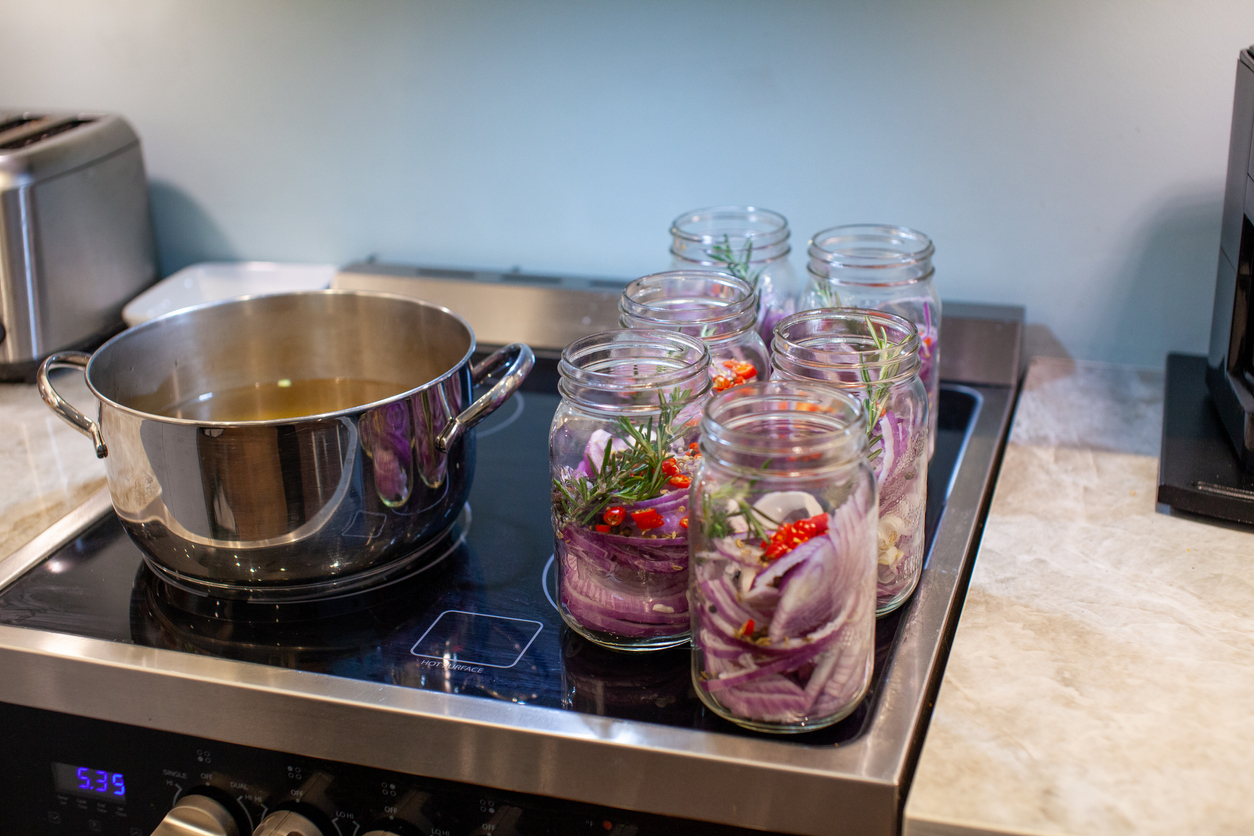
If a garden produces an abundance, can some of that produce to get through the winter. Water-bath canning is a simple method best used for acidic foods, such as tomatoes. It also works well for pickling and making jam and salsa.
Pressure canning is better for low-acid foods since the water-bath method can’t achieve the internal temperature of 240 degrees Fahrenheit necessary to kill bacteria. This method requires a pressure canner appliance.
3. Compose compost.
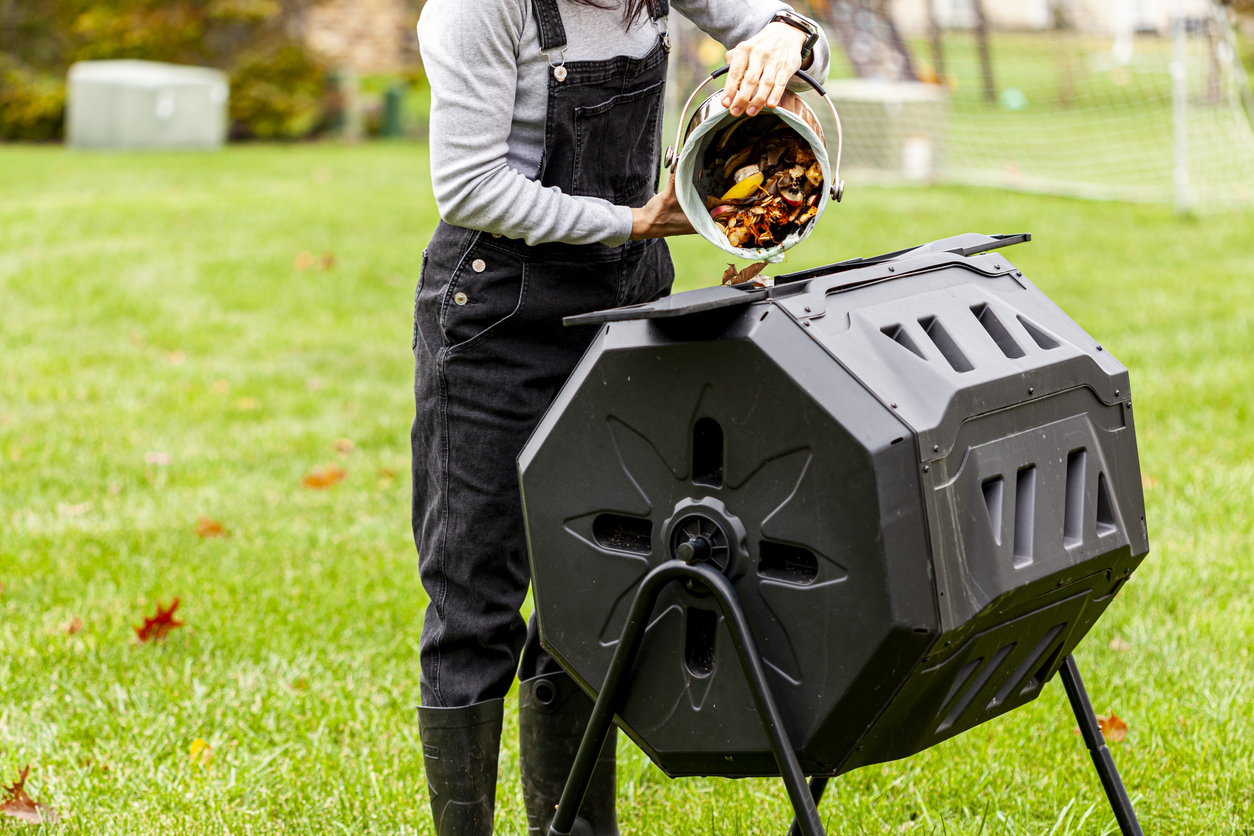
Composting is an environmentally friendly way to dispose of yard waste and kitchen scraps—and it will enhance soil with beneficial microorganisms that aerate the soil and break down organic material that feeds the plants. It’s a natural alternative to chemical fertilizers, and composting also diverts waste from landfills.
It’s important to balance materials rich in carbon and nitrogen when composting. Equally critical is the avoidance of perennial weeds, toxic substances, meat and bones, pet manure, and any material containing pesticides.
4. Bake bread.

Bread is the staff of life and, as everyone knows, there’s not much better than the aroma and taste of freshly baked bread. So, why not bake it at home? It’s not as difficult as it may seem, and (with a little experience) homesteaders can mix it up by adding their homegrown herbs or other ingredients for a rich palate.
The kitchen may already be stocked with many of the ingredients and equipment necessary, such as flour, yeast, salt, water, and loaf pans. Some breads call for eggs, milk, or butter. Time is also an important element, as the dough should sit awhile as it rises.
5. Live with livestock.
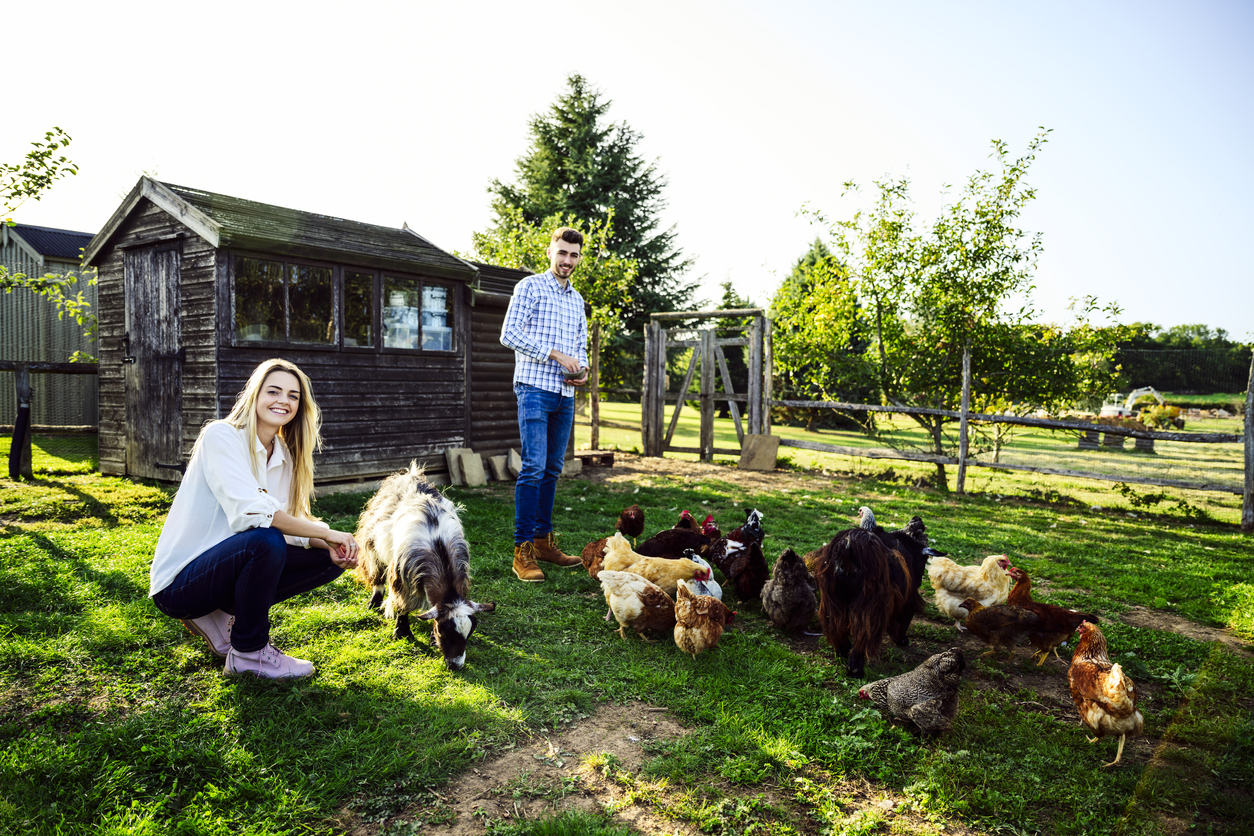
Adding animals to your homestead can be as simple as raising a few chickens to managing larger livestock, such as cattle, hogs, sheep, goats, or alpacas. Whatever animals you choose, be sure to thoroughly research their proper care, feed, and housing needs.
Chickens are popular backyard animals because they are easy to raise. In addition to providing delicious eggs, chickens are voracious bug eaters. Caring for chickens is relatively easy, as long as they receive the right food and safe, dry housing. Chicken coops can be small or large—or even mobile—but should include a covered run, perches for roosting at night, nesting boxes where hens can lay their eggs, and security from predators. In the spirit of homesteading, there’s also the option of building your own chicken coop for a bespoke addition to your yard.
RELATED: 11 Things You Need If You’re Raising Backyard Chickens
6. Sew what?
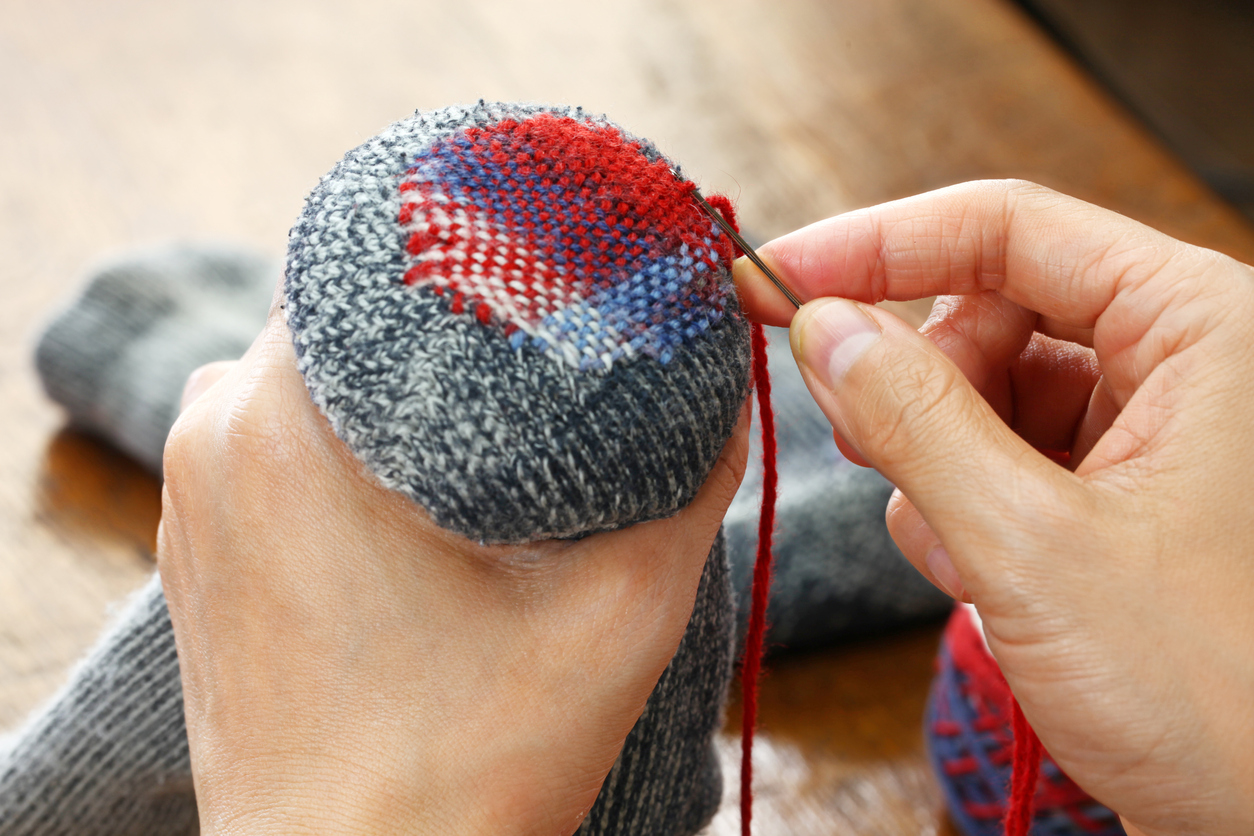
Pick up a needle and thread to learn to darn socks, sew on buttons, and mend torn clothing, or get more ambitious and start sewing your own clothes. If you don’t want to use up stored electricity, you can still find an old treadle sewing machine—or sew by hand.
Knitting and crocheting are other ways to produce clothing and useful items such as blankets. Those who raise sheep or alpacas on their homestead will have their own supply of material. It will need to be skirted, washed, carded, and spun before you take knitting needles or crochet hooks to it, but making your own clothing can be rewarding and satisfying.
7. Make a clean commitment.
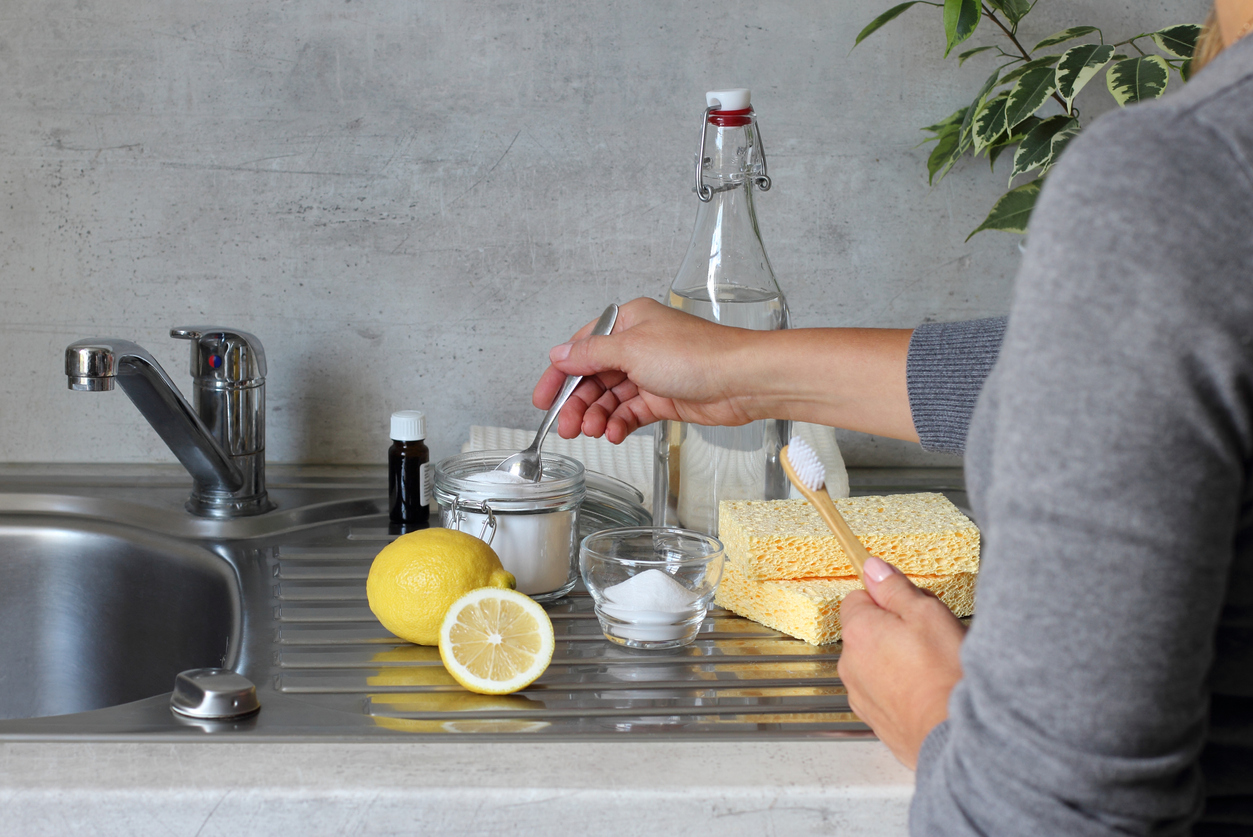
Making your own cleaning supplies can be more affordable and more environmentally-friendly. Several ingredients are common household items, such as white vinegar, salt, lemon, baking soda, hydrogen peroxide, and borax. You may even be able to add essential oils to some concoctions for a pleasant fragrance.
Be sure to follow established recipes. Some household chemicals, such as bleach and ammonia, are dangerous when combined. Also take care to ensure that the ingredients you choose are safe for pets and people.
8. Remember to recycle.
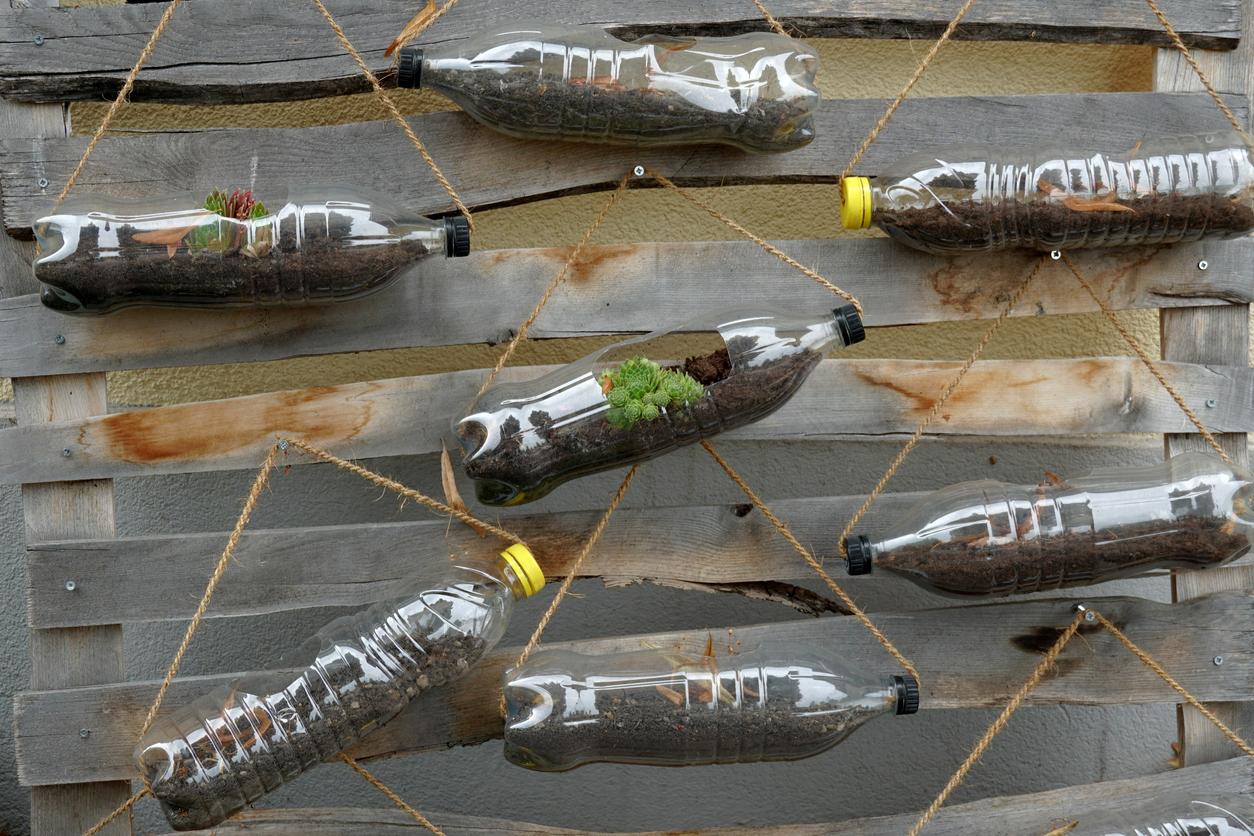
Part of the homesteading mantra is about leaving a smaller (negative) impact on the land. Thus, recycling is an important aspect of this lifestyle. From hand-me-down clothes to composting to repurposing worn-out appliances, recycling and upcycling double as economical and environmentally friendly facets of homesteading.
Recycling can include using found items, such as rocks and branches, in practical and useful ways. Sturdy branches can be turned into chicken roosts, for example. Rocks can line flower beds or walkways.
9. Bee mindful.
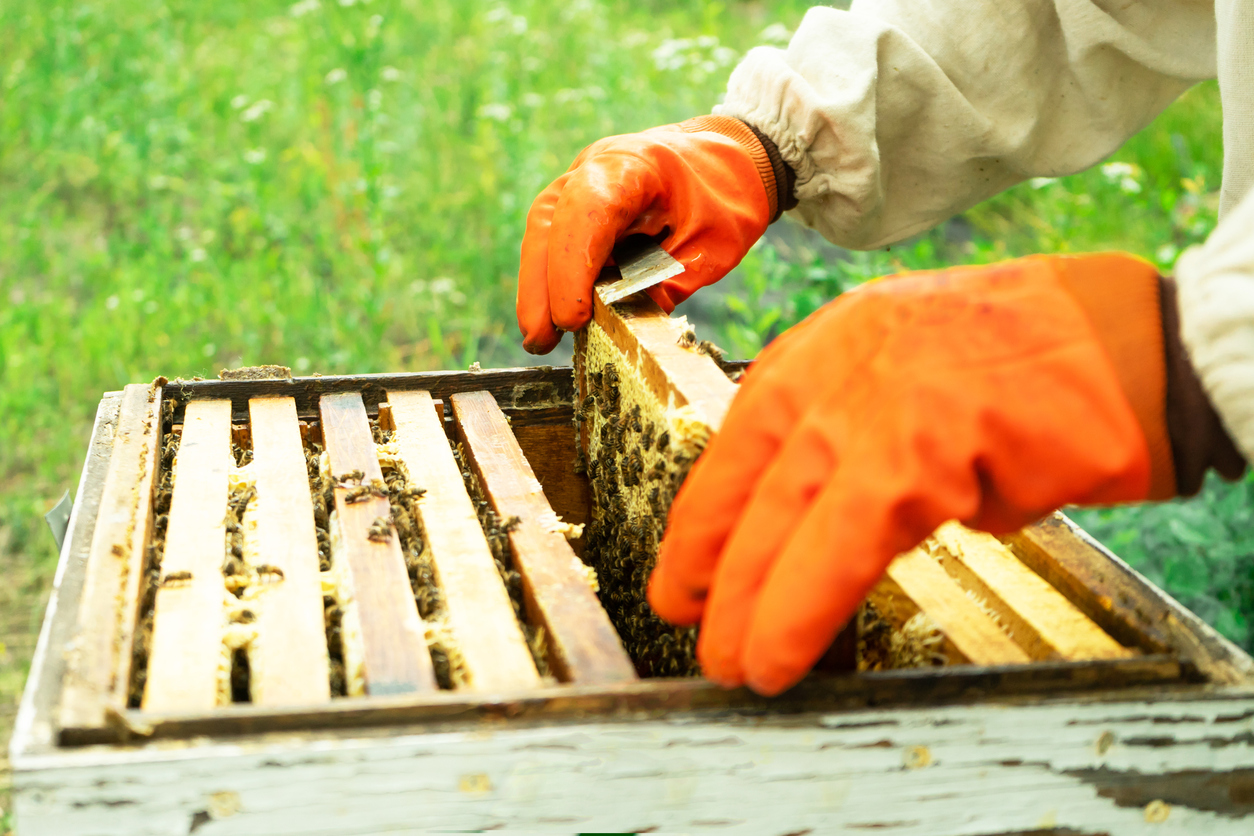
Bees are crucial to our survival, but bee colonies are being decimated by habitat loss and pesticides. You can support bees by maintaining hives. This does necessitate the purchase of supplies and protective gear, as well as acquiring beekeeping knowledge. However, many homeowners find beekeeping a fun hobby, with harvesting honey regularly being an added benefit.
If you’re not ready to become a home beekeeper, you can at least plant a pollinator garden to attract bees and other beneficial insects. This will also help the garden produce more fruits and vegetables.
10. Build carpentry skills.
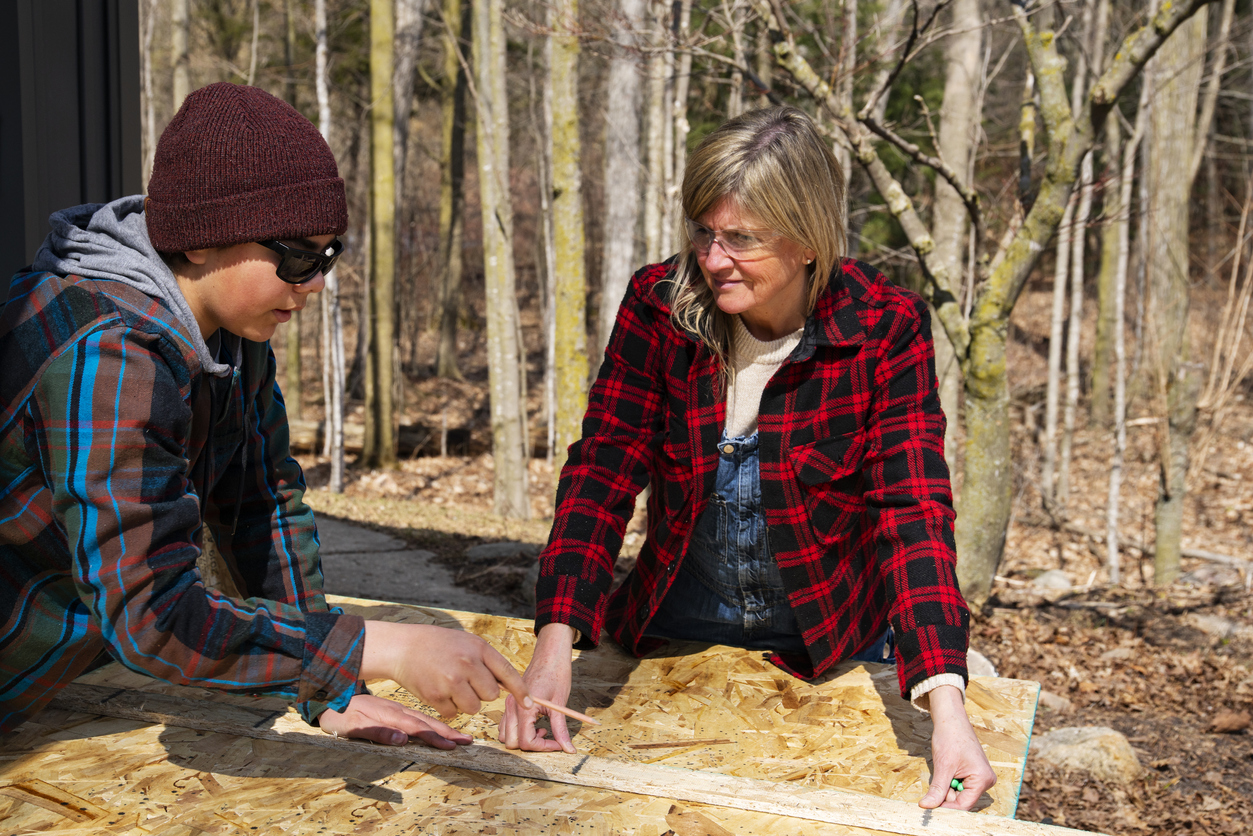
Whether you’re simply repairing items or building new structures, it’s a good idea to learn some basic carpentry skills—even better, you can also master the basics of plumbing or machinery repair. Keep in mind the old adage: Measure twice, cut once.
Be sure to assemble some essential tools, such as: a hammer, nails and screws, screwdrivers, saw, pliers, drill, wrenches, tape measure, level, files, clamps, vise, square, safety goggles.
11. Weave a network.

Networking provides more than companionship and advice. It’s a good source of labor for big jobs. Having an extra set of hands is helpful if you’re constructing a chicken coop. Maybe you need someone to look after your garden while you travel.
Networking also can provide a customer base for bartering goods and services. If you grew too many cucumbers and want to swap for some pole beans, or if you’re skilled in carpentry but not sewing, look for people with skills you need; both parties can benefit from bartering.
12. Go off-grid.
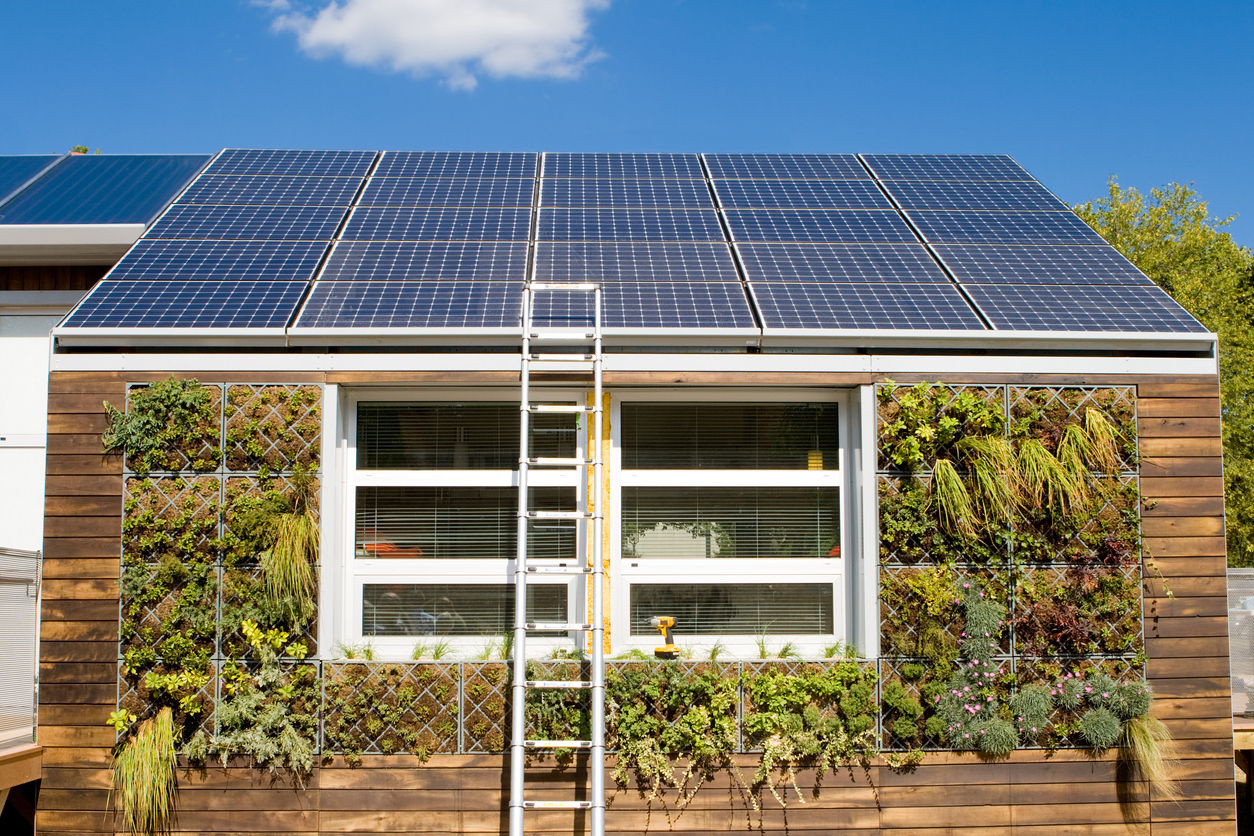
Cutting the (electric) cord may seem like a daunting task, but some locations make off-grid living easier. In general, warmer climates are more conducive to living without electricity, but solar panels and wind turbines make it feasible virtually anywhere. Of course, you’ll need a power storage system because the wind doesn’t always blow and the sun isn’t always out when you need energy.
Keep in mind, you’ll have to dig a well and septic field—and you’ll probably need a water collection system. However, you may find full homesteading freedom to be worth the effort.
RELATED: The Best Home Wind Turbines
